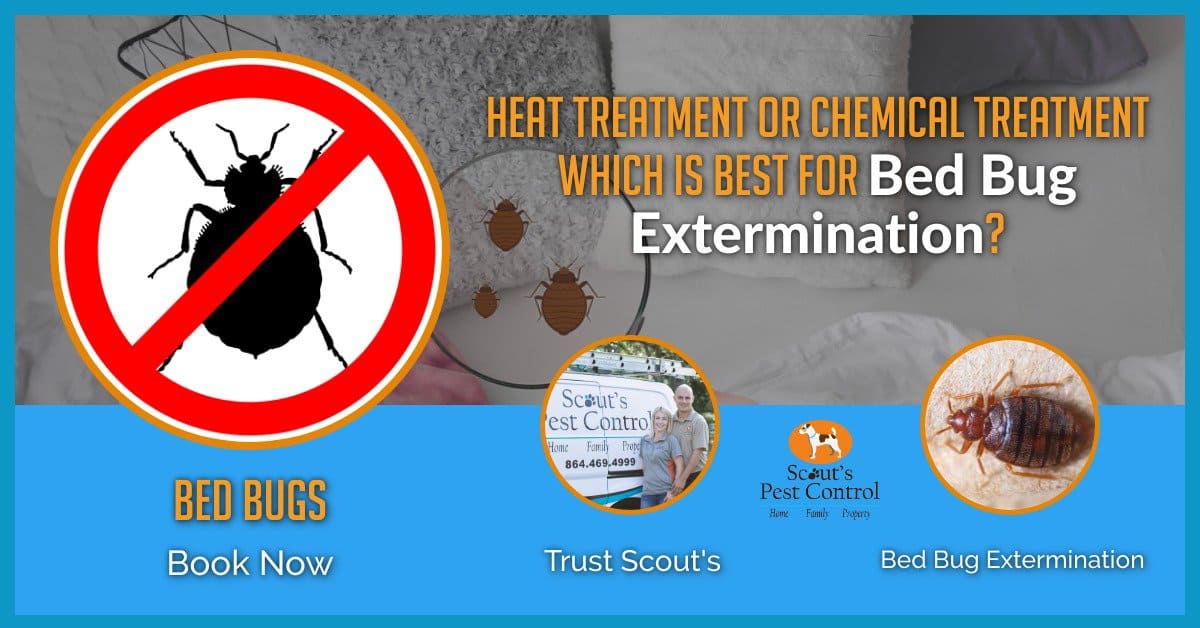A Breakdown of the Different Sorts Of Pest Control Solutions
In the realm of bug control, a multitude of methods exist to deal with the visibility and deal with of undesirable animals. From the standard use chemical pesticides to much more ingenious organic control remedies, each approach offers distinct advantages and restrictions. As we browse with the varied landscape of parasite control remedies, understanding the intricacies of each method becomes critical in figuring out one of the most efficient training course of activity. Keep tuned as we explore the nuanced world of insect control methods and find exactly how each type plays a distinct function in protecting our settings.
Chemical Pesticides
Chemical pesticides are commonly made use of in bug control to successfully eliminate a vast array of bugs and other parasites. These pesticides function by targeting the nerves of the insects, disrupting their regular functions, and inevitably causing their demise. The usage of chemical pesticides has actually been a staple in the parasite control market for years because of their efficiency and fast results.

Nonetheless, it is important to utilize chemical pesticides with caution because of their prospective dangerous impacts on the atmosphere and non-target types. Incorrect application or overuse of these chemicals can result in contamination, damage to useful bugs, and resistance advancement in insect populations. It is important to comply with safety guidelines and laws when utilizing chemical pesticides for bug control.
Biological Control Techniques
Taking into consideration the potential ecological effects and threats connected with chemical pesticides, biological control techniques offer an even more sustainable technique to managing parasite populations. Organic control entails using natural opponents, such as microorganisms, bloodsuckers, and predators, to reduce parasite populations. This method is typically more targeted, impacting just the specific insect varieties while minimizing damage to beneficial insects, people, and the setting.

One benefit of organic control is its long-lasting efficiency. Once developed, all-natural opponents can help regulate pest populaces constantly without the need for repeated applications of pesticides. Additionally, organic control is usually a lot more economical and can help in reducing chemical resistance in insect populaces gradually. In general, click biological control approaches use a environmentally pleasant and sustainable option to pest management.

Mechanical Bug Control
Mechanical pest control involves the physical control or elimination of parasites to manage their populations efficiently. This approach is usually employed along with various other bug control methods for comprehensive insect administration. One usual instance of mechanical parasite control is making use of catches to record insects or rats. These catches can be established in calculated areas where parasites are recognized to dwell, helping to reduce their numbers.
An additional mechanical technique is making use of barriers such as fencings, internet, or screens to obstruct parasites from getting in certain areas. By physically avoiding insects from accessing a location, the chance of invasions or damage can be considerably reduced. In addition, hands-on techniques like handpicking pests off plants or frameworks can be effective for smaller-scale infestations.
While mechanical pest control approaches can be labor-intensive, they use a non-chemical alternative that can be environmentally pleasant and sustainable. By targeting bugs straight, mechanical control strategies can assist maintain bug populations in check without counting on pesticides.
All-natural Remedies
Utilizing natural treatments for bug control supplies a sustainable and environment-friendly strategy to taking care of pest populations without resorting to chemical interventions. All-natural remedies involve utilizing compounds obtained from plants, minerals, or other naturally happening sources to discourage or get rid of bugs.
Furthermore, necessary oils such as tea tree oil or neem oil have insecticidal residential properties that can properly regulate parasites while being secure for the setting. An additional all-natural treatment is introducing useful bugs like ladybugs or praying mantises to your garden to exploit unsafe pests. By incorporating these all-natural remedies right into insect administration strategies, people can lower their dependence on synthetic chemicals and hop over to these guys promote a much healthier, a lot more well balanced ecological community.
Integrated Parasite Administration
Integrated Insect Management (IPM) is a thorough technique that integrates various approaches to successfully manage pest populations while decreasing dangers to human health and wellness and the environment. IPM involves the combination of multiple parasite control techniques such as biological control, environment manipulation, alteration of cultural techniques, and using resistant plant ranges. By utilizing a mix of these methods, IPM intends to decrease dependence on chemical pesticides, which can have unfavorable influence on ecological communities and human health and wellness.
One trick element of IPM is the focus on prevention. By applying actions to protect against insect invasions prior to they occur, such as preserving proper cleanliness and securing entry factors, the demand for reactive pest control procedures is minimized. Tracking and normal evaluations play an essential function in IPM, enabling early discovery of parasite issues and timely treatment.
Verdict
Finally, the different kinds of insect control options use a variety of alternatives for successfully taking care of pest invasions. Chemical chemicals give fast removal however might have ecological threats. Biological control methods use natural killers to manage parasites. Mechanical pest control involves physical barriers or traps. Natural remedies provide non-toxic options. Integrated Bug Administration incorporates numerous strategies for a holistic method to pest control. Each method has its own benefits and drawbacks, and picking one of the most ideal solution relies on the specific pest trouble handy.
Chemical chemicals are typically utilized in insect control to effectively remove a large variety of insects and various other bugs.Mechanical insect control involves the physical adjustment or elimination of parasites to manage their populations successfully (Kings best pest control cincinnati).Using natural treatments for pest control supplies a lasting and environmentally friendly strategy to managing parasite populations without resorting to chemical interventions.Integrated Insect Get the facts Monitoring (IPM) is a comprehensive method that combines numerous strategies to efficiently regulate pest populations while lessening threats to human wellness and the setting.In conclusion, the numerous types of pest control options supply a range of alternatives for properly handling pest problems